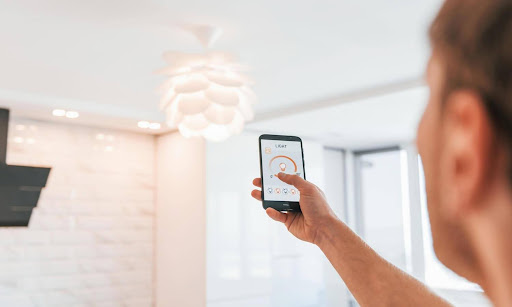Smart lighting sensors are transforming the management of energy consumption in homes and enterprises. By automating illumination based on user preferences, daylight levels, and occupancy, these sensors can significantly reduce unnecessary electricity consumption, resulting in cost savings. For those considering smart home automation company in dubai, integrating these sensors into your home or business can lead to considerable benefits.
-
Occupancy and Motion Sensors
The capacity to detect motion and occupancy is one of the primary advantages of smart illumination sensors. These sensors automatically activate lights when an individual enters a room and deactivate them when the room is unoccupied. This mitigates energy waste and can reduce illumination expenses by as much as 30%. Smart home dubai systems that incorporate occupancy sensors can optimize lighting efficiency while reducing energy bills.
-
Sensors for the Harvesting of Daylight
Daylight sensors regulate artificial illumination in accordance with the quantity of natural light present in a space. These sensors reduce electricity expenditures and optimize energy consumption by dimming or turning off lights when there is an abundance of daylight. For smart homes in Dubai, where natural sunlight is abundant, daylight harvesting can further lower energy costs.
-
Intelligent Dimming Controls
Dimmable LED lights are utilized by smart sensors to regulate luminance levels by user preferences. By reducing the intensity of the light when it is not required, energy is conserved, and the lifetime of the bulb is extended, resulting in additional cost savings. Smart home Dubai solutions offer intelligent dimming that caters to both convenience and energy efficiency.
-
Automated and Remote Control
Numerous smart lighting sensors are compatible with mobile applications and home automation systems, enabling users to remotely regulate their lights. Scheduling and automation guarantee that lights are activated solely when necessary, thereby further minimizing energy consumption. The ability to control lighting remotely is a significant advantage for residents and businesses in Dubai looking to enhance their smart home systems.
In Conclusion,
A cost-effective solution for reducing energy consumption in residences and commercial spaces is provided by smart sensors for lighting. These sensors assist users in optimizing energy consumption and reducing electricity expenditures by means of motion detection, daylight harvesting, or dimming controls. For those who are contemplating smart home solutions in Dubai, the integration of smart lighting sensors is a prudent move toward cost efficiency and sustainability.





























